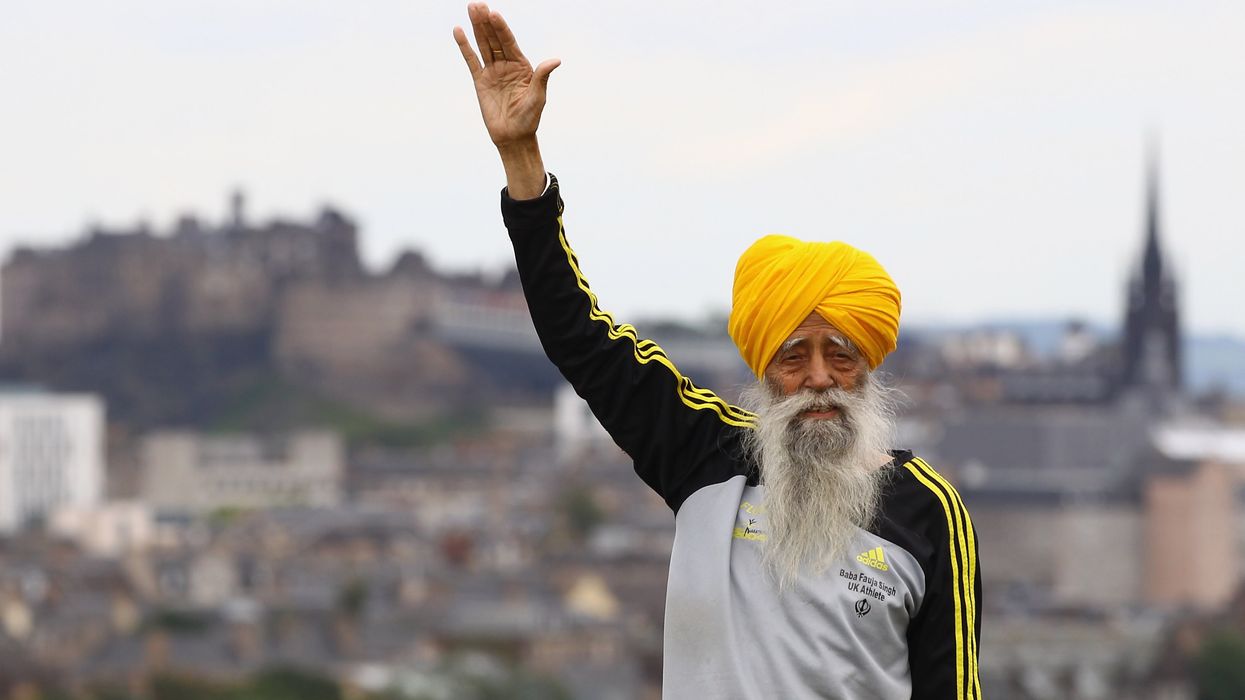HOW LATE ACTOR JAGDEEP ROSE UP FROM CHILD STARDOM TO BECOMING A LEGENDARY COMEDIAN
by ASJAD NAZIR
WHEN legendary Bollywood actor Jagdeep passed away aged 81, film fans, actors and media mourned the loss of his Sholay character Soorma Bhopali in a way that it was all he had to show for his career.
But there was so much more to the talented actor and a closer look at his remarkable life is testament to that. He nearly landed a lead role in an Oscar nominated film, was an in-demand child star, got into the boxing ring with Muhammad Ali and entertained audiences for 70 years.
He was born Syed Ishtiaq Ahmed Jaffrey on March 29, 1939, into a relatively comfortable life, but India’s partition in 1947 stripped his family of all they had. Things got worse when his father died soon after Partition and the impoverished family were literally on the streets. The youngster started selling soaps, combs and even kites to support his family. The nine-year-old landed a role as an extra in BR Chopra’s film Afsana and made a little extra money because he was confident enough to say a dialogue in Urdu. “I joined the industry, because I needed money. I never had any ambitions of playing the lead role or anything,” said Jagdeep in an interview.
This led to further films as a child actor, including Aar Paar, Munna and the award-winning Hum Panchi Ek Dal Ke, for which the then prime minister of India, Pandit Jawaharlal Nehru, gifted him his walking stick. A big turning point for the child star was 1952 classic Dhobi Doctor. Although he had a tragic role, ace director Bimal Roy was inspired to cast him in a comedian’s role in iconic 1952 film Do Bigha Zameen as Laloo Ustad. He recalled, “I still remember Bimalda’s words, that a person who could make one weep can also make one laugh heartily. It was then and there that I decided to take up comedy roles. I realised that a role is a role whether it is that of the leading man or the comedian.”
The talented teenager would appear in movies throughout the 1950s and was considered for a lead role in Oscar-nominated movie Mother India, but was seen as too nice to play the villainous Birju and was dropped after a few days of shooting. This would give a life-changing break to actor Sunil Dutt, who would go on to become a Bollywood legend. The young man was even launched as a leading man in films, including Bhabhi, Barkha and Bindaya. He soon realised audiences want to see him in comic roles and adapted accordingly. He recalled.
“I realised I was just not cut out to be a hero, because the kind of films made those days’ required chocolate-faced heroes who had nothing to do, but prance around with the heroine. I have absolutely no regrets having lost the bus as a hero and taken the plunge from the leading man to the comedian”
Playing supporting comic roles enabled him to do more roles and would result in him starring in more than 400 films, which included his unforgettable turn playing Soorma Bhopali in record-breaking curry western Sholay. He would later direct a movie titled Soorma Bhopali and had big named stars lining up to do cameos in it. In Qurbani, he played a comic boxer named after heavyweight champion Muhammad Ali and was invited to meet him to raise funds for a mosque in the US. They even did a mock fight in a boxing ring. Jagdeep was proud of being the people’s actor and had said: “My comedy will not be appreciated by the elite, or by a group of press people who watch a film with a pen in their hands. But it will be appreciated by the masses.”
He would act in films continuously for over 60 years, sometimes appearing in 10-20 films a year. Although he loved acting, the prolific star slowed down considerably later on in life because he didn’t like the vulgar comedy that became dominant in Bollywood. He also felt the respect for artists, especially elders, was no longer there and this disheartened him.
He had said, “In those days, art, culture and sentiment inspired filmmakers. Films were entertaining then. Unlike today, they did not portray vulgarity.”
His son Javed Jaffrey would carry on the family legacy by carving out a successful film and television career. In 2019, Jagdeep was given a Lifetime Achievement Award at the IIFA Awards, but deserved more from an industry he gave his whole life to.
















 Nigel Farage
Nigel Farage Rupert LoweGetty Images
Rupert LoweGetty Images
 Rajan offers the pind daan in honour of his father and ancestors
Rajan offers the pind daan in honour of his father and ancestors 


 LONDON, ENGLAND - JUNE 22: Baroness Floella Benjamin speaks during the unveiling of the National Windrush Monument at Waterloo Station on June 22, 2022 in London, England. The photograph in the background is by Howard Grey. (Photo by John Sibley - WPA Pool/Getty Images)
LONDON, ENGLAND - JUNE 22: Baroness Floella Benjamin speaks during the unveiling of the National Windrush Monument at Waterloo Station on June 22, 2022 in London, England. The photograph in the background is by Howard Grey. (Photo by John Sibley - WPA Pool/Getty Images)